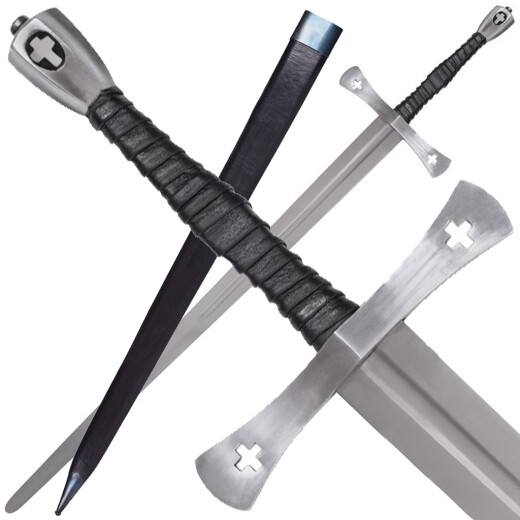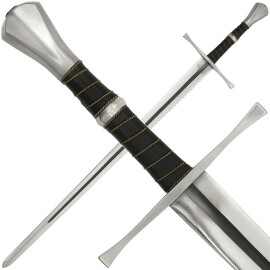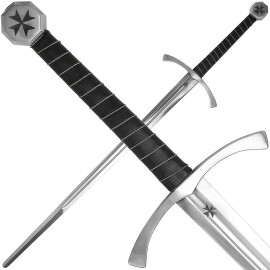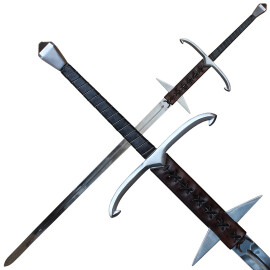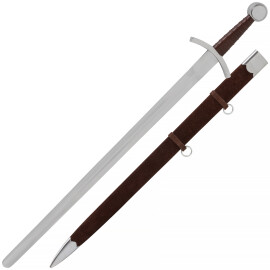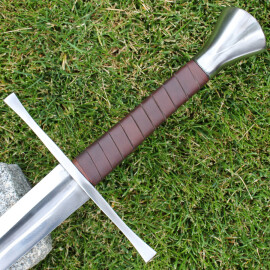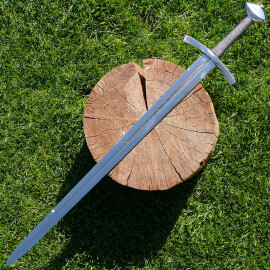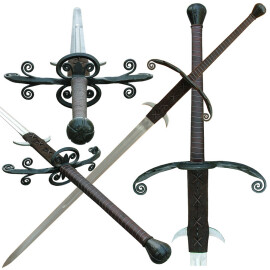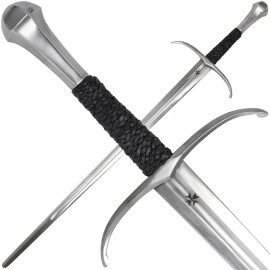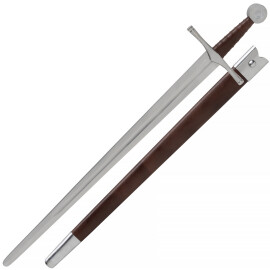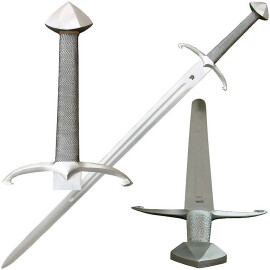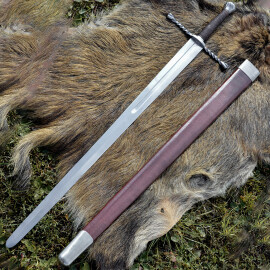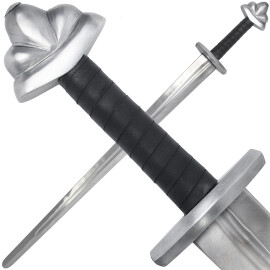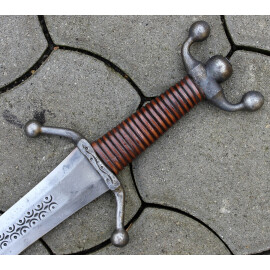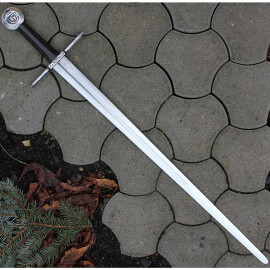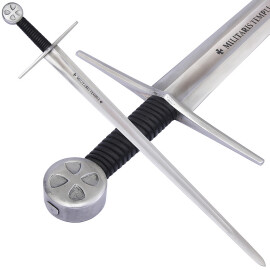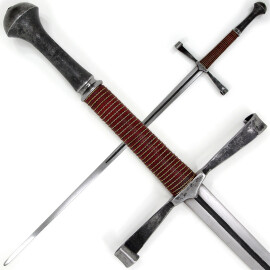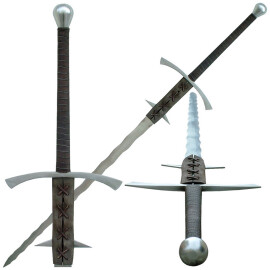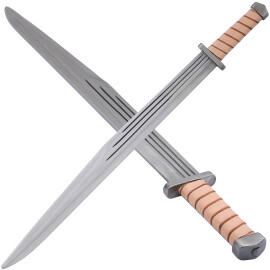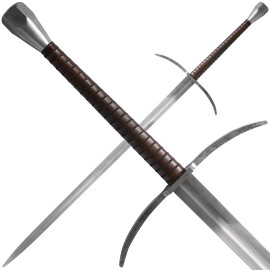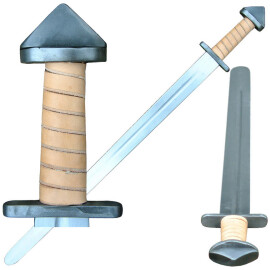Medieval Tewkesbury Sword with Scabbard, 15th c., practical blunt, Class C
Named after this historic battle, the Tewkesbury Sword is a classic example of a cut-and-thrust long sword as wielded in the late Middle Ages. Although this beautiful, good value one-and-a-half-handed sword (also called bastard sword) is not a one-to one replica of an original historical piece used in this great English battle, it features the typical characteristics of a traditional late medieval longsword and is patterned after the same swords that would have been used on both sides of the conflict at the time. More information...
Medieval Tewkesbury Sword with Scabbard, 15th c., practical blunt, Class C
The long, double-edged blade is forged out of hardened and tempered EN45 spring steel. It gently tapers towards the tip and is fullered for about half of its length on both sides, with a flattened diamond cross-section out to the point. The thick edges are not sharpened, the tip is rounded off and the blade's full tang is screwed to the pommel.
The hilt is composed of wooden core grip wrapped in black leather, a flattened steel cross guard and an elongated hexagonal scent-stopper pommel, also made of steel, with slightly concave facets and a recessed cross on one side. The guard is about 23cm long and 0.5cm thick. Its quillons have flared terminals, each decorated with a cross-shaped cut-out.
This late medieval hand-and-a-half sword comes complete with a black wood-and-leather scabbard with blued steel throat and chape.
This is the battle ready version of the Tewkesbury Sword. The blade's blunt, 1.5mm / 2mm thick edges and rounded tip make this sword ideal for light combat reenactment, stage fighting or sparring.
- Practical blunt version for combat reenactment: Sword class C, NO WARRANTY!
- Material: EN45 spring steel (high carbon steel, not stainless), mild steel guard and pommel, leatherwrapped wooden handle
- Overall length: approx. 118cm
- Blade length: approx. 90cm
- Hilt length: approx. 25cm (grip approx. 19cm)
- Max. blade width: approx. 5.5cm
- Point of balance: approx. 12.5cm from the guard
- Cutting edges: approx. 1.5 / 2mm
- Incl. wooden scabbard with genuine leather cover and steel fittings
- Weight without scabbard: approx. 1.8 kg
- Weight with scabbard: approx. 2.4 kg
Specs may slightly vary from piece to piece.
The steel used here is not rust-proof and might show slight surface tarnishing in places. We recommend you to maintain the blade and the scabbard on a regular basis, for example using Ballistol Universal Oil, which is ideally suited for steel care.
The Wars of the Roses, waged between 1455 and 1485, were a series of battles for the English crown between the Houses of York and Lancaster. Both families were members of the same European royal dynasty, the Plantagenets, who had been ruling over England for the last three centuries. These civil wars (punctuated by short episodes of relative peace) owe their name to the rivaling families' respective emblem, a white rose for the Yorkists and a red one for the Lancastrians. After 30 years of political scheming and terrible bloodsheds, the family feud ultimately led to the end of the Plantagenet dynasty and the rise of the House of Tudor.
The Battle of Tewkesbury, fought on the May 4, 1471, was a decisive Yorkist victory which saw the death of the young Lancastrian heir, Prince Edward of Wales, and completely established King Edward IV on the throne. It marked the beginning of England's longest spell of political stability in this multi-generational conflict, which however immediately reignited upon Edward IV's death in 1483.
Write to our specialist


